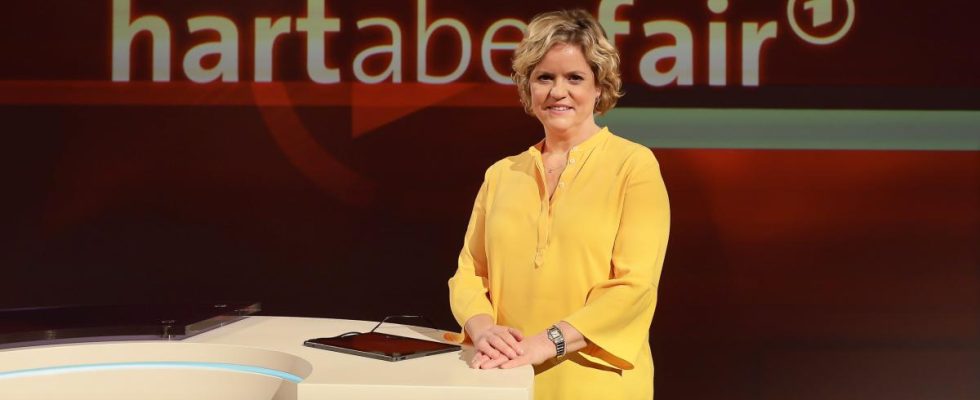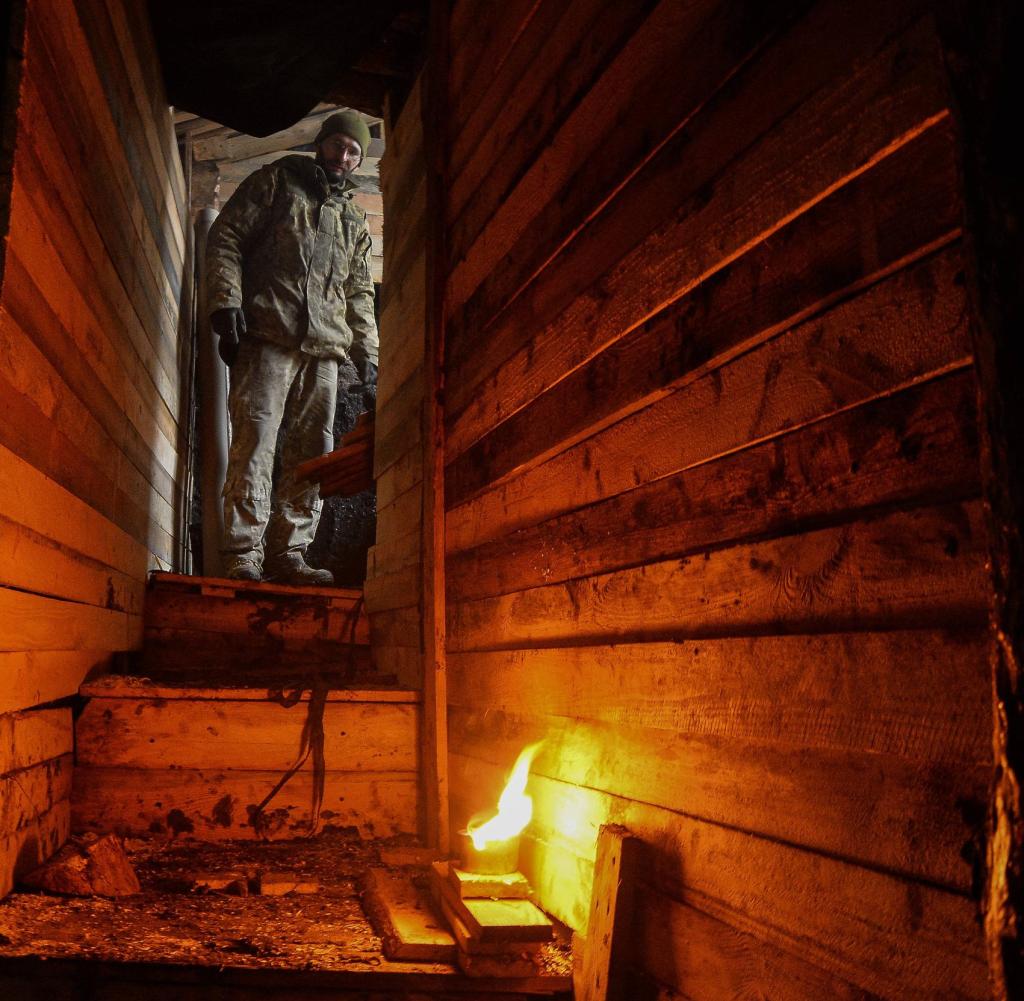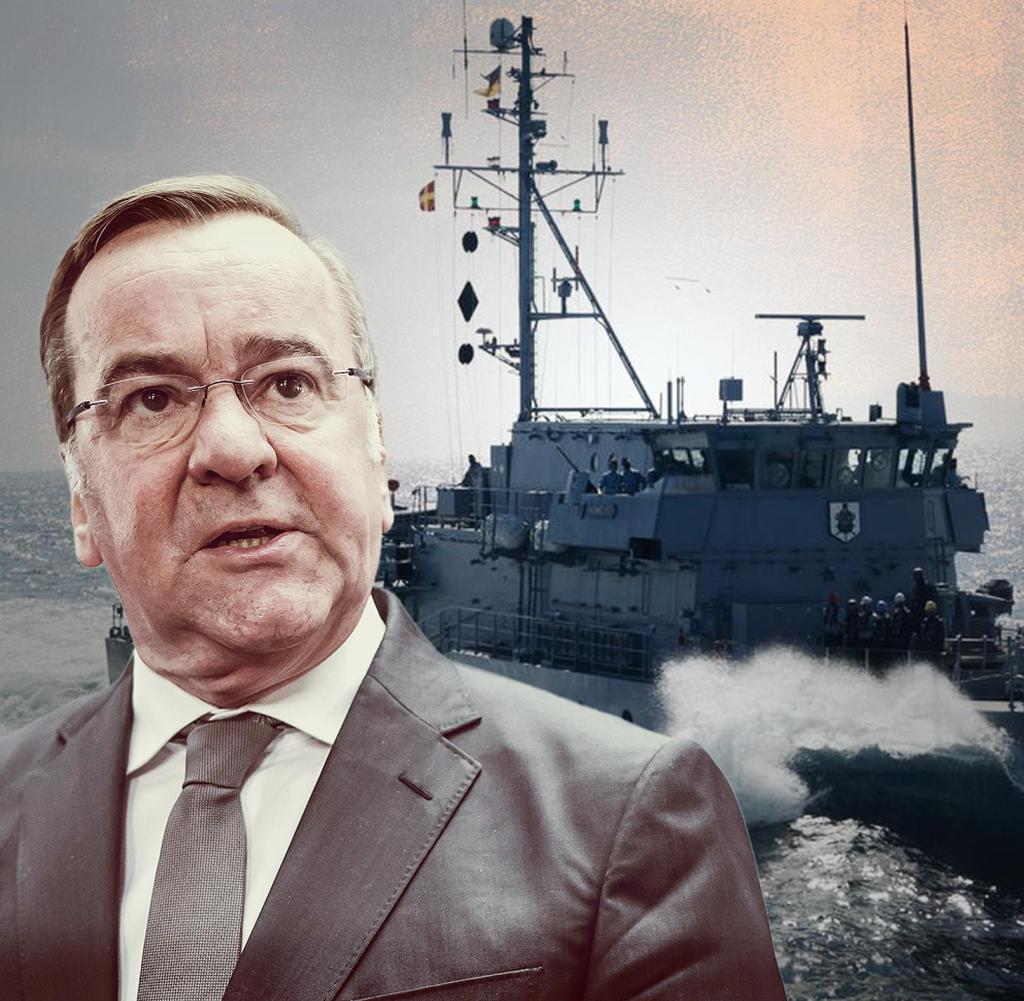IIn the last broadcast before the Christmas break, the group on “Hard but Fair” on Monday evening tried to take stock and discuss how the many crises will unfold in the next one under the motto “2023 – a year that teaches us to fear.” year could be solved.
The FDP politician and chairwoman of the Defense Committee Marie-Agnes Strack-Zimmermann and the ZDF international special correspondent Katrin Eigendorf were invited. The Spiegel journalist Markus Feldenkirchen, the professor of international politics at the Bundeswehr University in Munich Carlo Masala and the FDP politician and former Federal Minister of the Interior Gerhart Baum also discussed.
Marie-Agnes Strack-Zimmermann, Markus Feldenkirchen, Carlo Masala, Katrin Eigendorf, Gerhart Baum and moderator Louis Klamroth (from left)
Source: WDR/Dirk Borm, free of charge
A few weeks ago, journalist Katrin Eigendorf traveled to the Gaza Strip with the Israeli army. In “Hard but Fair” she drew a clear and harsh conclusion: “As far as the proportionality of this war is concerned, you have to look at international law – and Israel is breaking international law.” Even if it is clear that Hamas is entrenching itself behind its civilian population, “Israel must take this into account because it is a democratic state in which human rights apply,” said Eigendorf.
The guests agreed: While Israel has achieved military successes so far, the Jewish state is losing the war of images – which is why the future of the war is uncertain. According to Katrin Eigendorf, there is also unease in the USA that Israel cannot present a plan for after the war.
Katrin Eigendorf says: “One wonders what the goal of a war that is waged with such brutality is. There has to be some sort of post-war scenario.”
Source: WDR/Dirk Borm, free of charge
“Wagening this war so brutally naturally makes it seem like a war of annihilation to the public,” said Eigendorf. “One wonders what the goal of a war waged with such brutality is. There has to be some kind of post-war scenario.”
The journalist Markus Feldenkirchen also said that he now considers the war to be disproportionate. He warned: “With the images from Gaza, hatred of Israel will grow in the surrounding countries and will be directed against Israel in a few years.” Israel must therefore find the tact to wage the war without “maximum hatred and anger.” to create.”
Strack-Zimmermann believes that Netanyahu will take a political hit in 2024
According to security expert Carlo Masala, Israel’s original goal of destroying Hamas is still realistic. He acknowledged that in Gaza’s “urban environment” it was difficult to avoid civilian casualties, making the question of proportionality ambiguous. But he also pointed out that the growing pressure on Israel, especially from US Secretary of State Antony Blinken, has already led to a change in Israeli operations.
Only Marie-Agnes Strack-Zimmermann avoided the question of whether Israel’s conduct of the war was justifiable: “I think we should be very careful with the moral assessment because what happened in Israel has such an incredible dimension,” said she. She pointed out that Netanyahu “will not survive” the war politically. And then comes the crucial sentence: “If Jews realize that they are no longer safe in the country, then he will get the receipt.”
“Putin is relying on this fatigue effect”
The guests were largely negative about the future of the war in Ukraine – as long as there was no continued will in Germany to want to support the country. The war in Israel and the upcoming elections in the USA have affected international support for Ukraine, says Markus Feldenkirchen, and that will only eventually strengthen Putin. “Putin is relying on this fatigue effect and on the lack of supplies of weapons,” he said. “Then, if that happens, he can crush Ukraine.”
Feldenkirchen pointed out that the last announcement of a tank delivery came from January of this year: “If things continue at this rate, then I see black for Ukraine.”
Katrin Eigendorf also noted that Russian President Vladimir Putin is currently in a rather good situation: he is not losing the war, he does not have to fear opposition, and he is not in economic trouble. “He sits a lot tighter in the saddle than we expected.”
Marie-Agnes Strack-Zimmermann asserted that German politics is not losing sight of the war in Ukraine. On the contrary, it should be made clear that the war could last much longer, she said: “We know that if a war is not decided after a year, it can also last ten years.”
Defense Minister Boris Pistorius supported Strack-Zimmermann’s call for “war-readiness”. In this context, she referred to Troisdorf in North Rhine-Westphalia, which is currently refusing to allow an ammunition factory to double its area. Strack-Zimmermann expressed understanding about the green space that would be lost, but such decisions were also part of warfighting: “If we don’t live safely, all discussions about health, social issues and whatever are irrelevant,” she said.
At the end of the show, moderator Louis Klamroth, as always, went over to his colleague Brigitte Büscher, who collected the audience’s opinions. After moderating, Klamroth said he hoped to see Büscher again in the new year, but then Büscher announced that this show would be her last – after more than twenty years. What followed was a rather unceremonious farewell between Klamroth and Büscher, which remained unclear as to whether it had been planned that way.
Co-host Brigitte Büscher announces live on the show
Source: WDR/Dirk Borm, free of charge
There was speculation on social media that Büscher’s termination was related to the recent move to Klamroth’s production company and that Klamroth had not been announced before the broadcast. Last week his predecessor Frank Plasberg and producer Jürgen Schulte in an interview complains that Klamroth hastily ended the collaboration with Plasberg’s production company.
“I vowed not to say anything to my successor. “It’s worked very well so far, although it’s becoming increasingly difficult for me,” Plasberg told the DWDL portal. And further: “Since my last broadcast we spoke maybe once or twice before we realized: He wanted a break. I had to be 66 years old to get to know someone who was so superficially friendly and had such an approach.”






